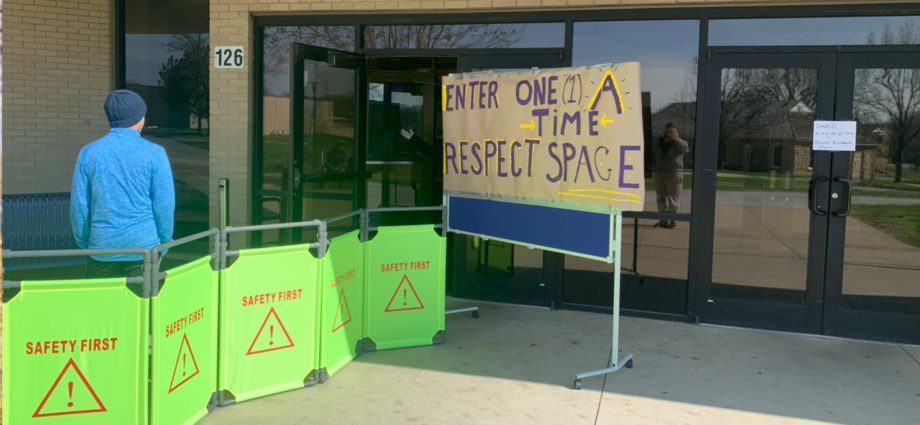Haskell Indian Nations University recently came under fire after releasing a statement documenting an on-campus student’s self-reported positive test result for COVID-19. The public wanted to know why these students weren’t “home” when weeks earlier HINU provided both financial and personal support to get students back to their families. This also comes during Kansas’ mandated stay-at-home orders. So what does “home” mean for these students, and why aren’t they with their families?
First, to contextualize HINU’s message, during the travel safety window students were required to create travel safety plans. Tonia Salvini, Vice President of University Services, told students that if going home wasn’t an option that they should write that on their travel plans. HINU administration did not make themselves available to comment on how many students remained on campus, but the Indian Leader estimates that number to be less than 10% of enrolled students.
HINU’s pandemic policies humanized its students in creating a process that was meaningful to the safety of each student, and for some, it wasn’t being sent away. One student, 69 years old and in the vulnerable category for COVID-19 said, “Haskell is a good place to be right now.” HINU is also home for others during this time for various reasons.
Though each of these students has their own personal reasons for remaining on campus, the public should understand that many break the mold of teenage college students who have families to return to. For some students, being evicted would mean being homeless, the Haskell community is the only family for some. And in others, their families may be toxic, containing abusive relationships and dangerous situations involving drugs and other safety risks. Student safety considerations don’t just surround COVID-19.
For others, there were health concerns, either being immune-compromised or having a family member who is and travel exacerbating the potential of infection or return to hotspots. Health safety is also a concern for those coming from non-reservation communities. Without access to Indian Health Services, they would not have access to healthcare for existing health conditions or assistance in the event of a COVID-19 infection.
The COVID-19 pandemic is exposing all types of privilege. While students remaining on campus have great gratitude to HINU and it’s faculty for allowing them to stay when many universities evicted all of their students, community members should realize there is a privilege in having a safe alternative to return to other than HINU.
Featured image of student waiting in turn to pick up a meal at Curtis Hall. Photo by Jared Nally

